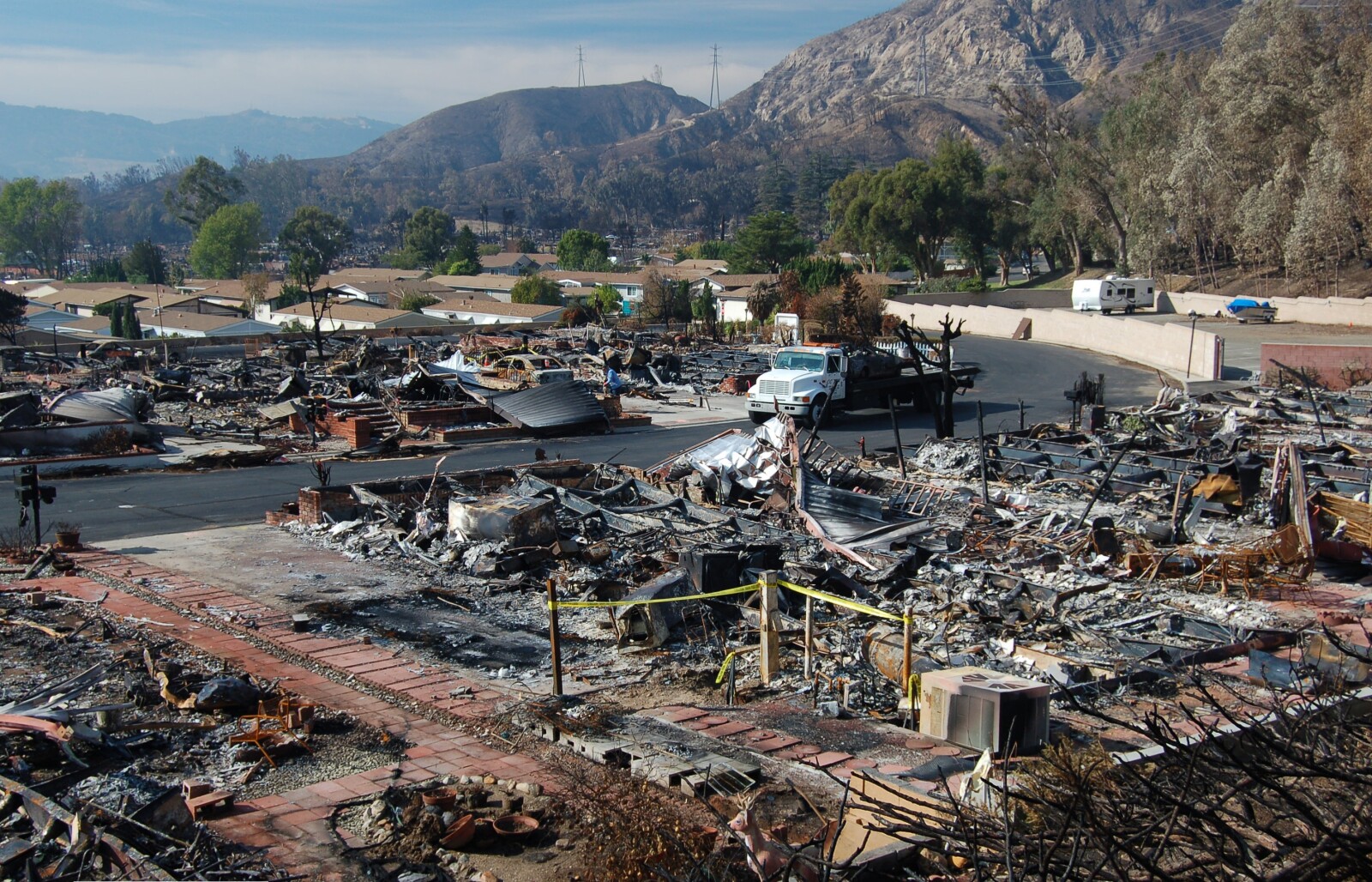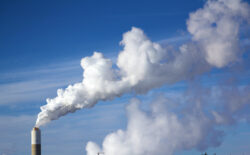Who is Responsible for Environmental Damage?
This article examines the significance of expert witnesses in air pollution class actions, highlighting the multifaceted nature of their role.

Expert testimony represents a critical component in such cases, given the technical complexity of air pollution issues and the need for comprehension and interpretation of scientific data.
The article explores the science behind air quality measurement, the interpretation of environmental regulations, and the art of communicating intricate concepts to the court.
The manner in which expert witnesses gather and present vital data, handle cross-examinations, and influence jury decisions is analyzed.
Furthermore, it delves into their role in settlement negotiations and the impact of their testimonies on the outcome of cases.
Lastly, the article provides insights into future trends in environmental litigation.
This comprehensive analysis serves to elucidate the multifaceted role of expert witnesses, thereby emphasizing their valuable contribution to the legal process in air pollution class actions.
Key Takeaways
- Expert witnesses play a critical role in air pollution class actions by providing comprehension and interpretation of scientific data.
- Specialized testimony from expert witnesses offers unique perspectives based on specialized study and experience, enhancing the accuracy and reliability of the testimony.
- Expert witnesses bridge the gap between science and legislation by interpreting and applying regulations in air pollution class actions, influencing the formulation and interpretation of regulations.
- Effective communication skills are essential for expert witnesses to present complex data to the court, including the use of simplification strategies and everyday language to increase accessibility and understanding.
Understanding the Importance of Specialized Testimony
Specialized testimony, particularly in the realm of air pollution class actions, holds significant importance as it provides intricate scientific and technical insights that are crucial for informed decision-making processes. In these complex legal battles, the role of expert witnesses is pivotal, as they offer unique perspectives based on years of specialized study and experience in the field of air pollution. Their testimony is instrumental in elucidating the often complex scientific themes underpinning the case, thereby enabling judges and jury members to make informed decisions.
Expert credibility is a key factor that underpins the efficacy of specialized testimony. The expert witness, as a result of extensive learning and practical experience, possesses the ability to dissect complicated scientific concepts and present them in an easily comprehensible manner. This credibility is vital, as it provides the court with confidence in the accuracy and reliability of the testimony being given.
Testimony preparation is another critical aspect that contributes to the significance of expert witnesses in air pollution class actions. Meticulous preparation entails the expert witness thoroughly analyzing the case, comprehending the scientific data involved and effectively communicating the same in a court of law. The expert's ability to prepare and deliver a persuasive testimony can greatly influence the outcome of the case, as it aids in the court's comprehension of complex scientific concepts.
Hence, the role of expert witnesses in air pollution class actions is not merely restricted to providing specialized testimony. Their credibility and preparation also play an integral role in shaping the court's understanding and interpretation of the scientific evidence presented, thereby significantly impacting the legal outcome.
The Science Behind Air Quality Measurement
Delving into the complexities of air quality measurement, it becomes evident that this science employs a range of methodologies and technologies to accurately gauge the concentration of pollutants in the environment. The sophistication of these techniques is necessitated by the multifaceted nature of air pollution, with numerous potential pollutants emanating from a myriad of sources.
Crucial to this process are Pollution Detection Methods, which are used to identify and measure the presence and concentration of various pollutants such as particulate matter, nitrogen dioxide, sulfur dioxide, and carbon monoxide, among others. These methods encompass both manual and automatic monitoring techniques, utilizing devices such as high-volume samplers for particulate matter and gas analyzers for gaseous pollutants.
Furthermore, the employment of advanced technologies such as remote sensing and satellite imagery contributes to the accuracy and comprehensiveness of these detection methods. These technologies enable the monitoring of air quality over vast geographical areas and can provide real-time data, allowing for prompt response to deteriorating air quality conditions.
After the detection and measurement phase, it becomes necessary to conduct a Health Effects Analysis. This involves evaluating the potential health implications of the identified pollutants, based on their concentration and the duration of exposure. This analysis is crucial in determining whether the levels of pollution constitute a health risk and thus form the basis of a class action lawsuit.
Thus, the science of air quality measurement is a multifaceted discipline, underpinned by robust methodologies and advanced technologies. The results of these measurements, when combined with health effects analysis, play a pivotal role in air pollution class actions, aiding in the provision of expert testimony and ultimately the pursuit of justice.
Interpreting Environmental Regulations
Understanding the intricacies of environmental regulations is a critical aspect of environmental science, as these legal frameworks dictate the permissible levels of pollutants in the atmosphere, thereby safeguarding public health and the natural world.
These regulations, however, are not always straightforward and often call for expert interpretation. Expert witnesses, therefore, play a vital role in interpreting and applying these regulations in air pollution class actions.
Understanding environmental regulations requires a comprehensive knowledge of the legislative impacts on air quality standards. This encompasses not only the technical aspects of measuring air pollution but also the legal implications of exceeding predetermined levels. Expert witnesses, with their in-depth understanding of environmental science and law, are well-positioned to bridge this gap between science and legislation.
Regulation loopholes often present a challenge in enforcing air quality standards. Certain industries might exploit these gaps to emit pollutants at levels that, while technically within legal limits, pose significant risks to air quality and public health. Expert witnesses can aid in identifying these loopholes, providing an unbiased and scientifically sound assessment of the situation. Their testimony can have a profound impact on the outcome of air pollution class actions, influencing both the interpretation of existing regulations and the formulation of future legislation.
Thus, the role of expert witnesses extends beyond mere interpretation of environmental regulations. They provide a crucial link between scientific understanding and legal enforcement, ensuring that air quality standards are met and that public health is protected. Their input can be instrumental in driving legislative changes, closing regulation loopholes, and reinforcing the importance of safeguarding the environment.
The Art of Communicating Complex Concepts
Communicating intricate scientific concepts in an accessible manner is an essential skill in the field of environmental science, particularly when explaining these ideas to non-specialists, such as policymakers or the general public. This practice involves not only the conveyance of facts but also the contextualization of these facts within the broader societal and environmental implications. The ability to translate complex scientific data into easily understandable information is a crucial aspect of fostering informed public discourse on issues such as air pollution.
Concept simplification strategies play a significant role in this process. By breaking down complex ideas into their fundamental components, these techniques facilitate the comprehension of intricate scientific concepts. For example, analogies, metaphors, and visual aids can be used to illustrate abstract principles in a more tangible way. The use of everyday language, rather than technical jargon, can also increase the accessibility of information.
Connecting with non-expert audiences poses its own set of challenges. In addition to simplifying complex concepts, it is necessary to convey the relevance and implications of these ideas to the audience's daily lives. This can be achieved by drawing connections between scientific data and familiar concepts or experiences. Moreover, a comprehensive understanding of the audience's background, values, and concerns can inform the communication strategy and facilitate the establishment of a meaningful dialogue.
The role of expert witnesses in air pollution class actions embodies these practices. Their expertise allows them to interpret and communicate complex data about air pollution, while their understanding of the legal context enables them to present this information in a way that is relevant and compelling to the court. Their task is not just to inform, but to persuade, employing a blend of scientific knowledge and communication skills to make a convincing case.
Gathering and Presenting Critical Data
Critical data collection and presentation in environmental science necessitates meticulous attention to detail and an unwavering commitment to accuracy, as it forms the backbone of evidence-based decision making and policy development. This is especially true in the context of air pollution class actions, where data authenticity is paramount.
Expert witnesses, with their specialized knowledge and skills, play a pivotal role in this process, ensuring that the data collected is verifiable, accurate, and relevant.
Data authenticity refers to the legitimacy and credibility of the data collected. It is crucial to ensure the data's origin, accuracy, and reliability. This is achieved through rigorous verification processes, adherence to scientific methodologies, and the application of advanced technological tools. Expert witnesses, owing to their vast experience and technical expertise, are ideally suited to attest to the authenticity of the data, thereby enhancing its evidentiary value.
Expert Selection, the process of choosing the appropriate expert witness, is a critical step. The selected expert must possess the requisite skillset, experience, and knowledge in the relevant field. In an air pollution class action, the expert should have a deep understanding of environmental science, data collection methods, and pollution measurement techniques. Their ability to effectively communicate complex concepts and present critical data in a digestible format is also essential.
The role of expert witnesses extends beyond simply presenting data. They provide an authoritative interpretation of the data, linking it with the scientific principles, and thereby influencing the outcome of the lawsuit. Thus, the careful gathering and presentation of critical data by expert witnesses is a key element in air pollution class actions, providing a robust foundation for legal arguments and policy decisions.
Case Study: Successful Use of Expert Testimony
Transitioning from the essentiality of gathering and presenting critical data, it is equally imperative to delve into a concrete instance that demonstrates the successful use of expert testimony in air pollution class actions. The unfolding of this case study will affirm the pivotal role of expert witnesses in reinforcing the prosecution's standpoint.
In the realm of air pollution class actions, expert credibility is vital in the successful execution of testimony strategies. A compelling example of this is the historic case of 'State of California v. General Motors Corp', where expert witnesses played a decisive role. The state filed a lawsuit against six automakers, alleging that their vehicles' greenhouse gas emissions contributed significantly to global warming and resulted in substantial damage to the state's resources, infrastructure, and public health.
The prosecution's strategy relied heavily on the credibility of expert witnesses, who were climatologists and environmental scientists. Their comprehensive knowledge of air pollution and its impacts facilitated the construction of a robust case. By presenting empirical data, making intricate scientific concepts comprehensible to the lay jury, and effectively countering the defense's arguments, the expert witnesses were instrumental in validating the state's claims.
The testimony strategies employed by the experts involved a meticulously crafted blend of objectivity, scientific integrity, and persuasive communication skills. Their testimonies resonated with the jury, thus fortifying the case's validity. This case underscores the importance of carefully selected and well-prepared expert witnesses in shaping the outcomes of air pollution class actions.
Thus, expert testimony, underpinned by credibility and strategic presentation, can significantly influence the proceedings and final verdict in air pollution class actions. This case study serves as a potent reminder of the substantial impact that expert witnesses can exert in legal battles concerning environmental pollution.
Cross-Examination of Expert Witnesses
Delving into the dynamics of legal proceedings, understanding the process and significance of cross-examination in cases concerning environmental issues is of paramount importance. Notably, in class actions involving air pollution, cross-examination of expert witnesses plays a vital role. It is during this stage that the credibility of a witness is scrutinized, and the authenticity of the testimony given is questioned.
Cross-examination aims to test a witness's knowledge, ability, and truthfulness. This procedure is a critical tool for challenging the testimony of expert witnesses, especially in complex cases such as air pollution class actions. During cross-examination, the opposing counsel can challenge the methods used by the expert, the accuracy of their findings, and their understanding of the subject matter. This stage ultimately determines the witness credibility, an element that significantly influences the jury's perception and the judgement of the case.
Testimony challenges are an inherent part of the cross-examination process. These challenges can come in the form of questioning the expert's qualifications, the validity of their methodology, or their impartiality. The objective is to reveal any potential biases, inaccuracies, or lapses in the expert's testimony that could undermine their credibility.
Given the technicality of air pollution class actions, the weight of expert testimonies cannot be underestimated. Thus, the careful and meticulous cross-examination of these witnesses is essential. It is through this rigorous process that the court ensures only reliable and credible evidence influences the decision in these critical environmental cases. This underlines the pivotal role cross-examination of expert witnesses plays in the pursuit of justice in air pollution class actions.
The Impact of Expert Testimony on Jury Decisions
Undeniably, the testimonies of specialists in a legal proceeding wield substantial influence on jury verdicts, particularly in cases with substantial technical intricacies. In class-action suits concerning air pollution, the technicalities of the subject matter often necessitate the input of expert witnesses. These specialists possess profound knowledge of the field, capacitating them to elucidate complexities, thus influencing jury decisions.
The introduction of an expert witness can significantly sway the direction of a case. The expert's testimony, often delivered in a comprehensible manner, can demystify the complexities of air pollution science, thereby helping the jury to understand the case better. Research in decision psychology suggests that jurors tend to favor information that is easy to comprehend and digest, making expert testimony a potent tool in a complex environmental case.
However, the influence of expert witnesses can potentially lead to jury bias. The persuasiveness and credibility of an expert's testimony can overshadow the objectivity required for a fair trial. Jurors may find themselves swayed more by the expert's charisma and eloquence, rather than the evidence presented. Thus, the role of expert witnesses in these cases must be regulated and monitored to ensure the impartiality and fairness of the trial.
The impact of expert testimony on jury decisions in air pollution class actions is manifold. While they provide much-needed clarity on complex issues, their influence can potentially bias the jury. Therefore, it is essential to strike a balance between leveraging their expertise and maintaining the integrity of the trial process.
The Role of Expert Witnesses in Settlement Negotiations
In the intricate dance that is settlement negotiations, the incorporation of specialist testimony often emerges as a pivotal factor in maneuvering towards a resolution. Expert witnesses, particularly those specializing in air pollution, bring forth specialized knowledge and understanding that is essential in guiding the negotiation process. They provide an objective viewpoint, often backed by years of experience and research, which can be instrumental in both defining the issues at hand and proposing potential solutions.
Witness credibility plays a significant role in the impact of the expert testimony. If the witness is perceived as knowledgeable and unbiased, their testimony can carry substantial weight in the negotiation process. The credibility of the witness is often evaluated based on their qualifications, experience, and the solidity of their evidence. For instance, in air pollution class actions, an expert witness with a strong background in environmental science and a thorough understanding of the effects of air pollution on human health and the environment can significantly influence the negotiation process.
Negotiation strategies often hinge on the strength of expert testimony. It is not uncommon for parties to leverage the expertise of their witnesses to gain an advantage in negotiations. The testimony of expert witnesses can help in establishing the extent of damage caused by air pollution, identifying the responsible parties, or estimating the necessary compensation. These factors can substantially shape the course of negotiation, potentially leading to a quicker resolution.
Thus, expert witnesses play a crucial role in settlement negotiations, impacting the strategies employed and ultimately influencing the final resolution, particularly in cases involving complex issues such as air pollution.
Future Trends in Environmental Litigation
Emerging trends in environmental litigation reflect a global paradigm shift towards sustainability and environmental justice. There is a sharp increase in lawsuits addressing climate change, deforestation, and water pollution. Climate Change Litigation, a relatively new but rapidly growing field, is propelling this shift as it seeks to hold corporations and governments accountable for their roles in exacerbating global warming. Expert witnesses with specialized knowledge in air pollution and climate science play a vital role in these lawsuits, providing compelling evidence to support claims of environmental damage and negligence.
Simultaneously, the rise of Green Technology Innovation is also shaping future trends in environmental litigation. Green technology, or clean technology, refers to products, services, or practices that utilize renewable materials and energy sources, reduce emissions and waste, and have a minimal impact on the environment. As these technologies advance, they are likely to become more central to environmental lawsuits, either as a source of dispute or as a solution to environmental harm. Expert witnesses with knowledge in this field may be called upon to provide insights into the feasibility and effectiveness of such technologies, further demonstrating their pivotal role in environmental litigation.
These developments underline the growing recognition of the dire need for environmental justice and sustainable practices. They also highlight the increasing demand for expert witnesses in the field of air pollution and green technology. Their expertise not only aids in understanding complex issues but also assists in crafting solutions that can mitigate the impacts of environmental degradation. As such, their role in environmental litigation will only continue to grow in importance.
Frequently Asked Questions
What are the educational qualifications required to become an expert witness in air pollution class actions?
Educational qualifications for an expert witness in air pollution class actions typically involve advanced degrees in Environmental Science, Engineering, or related fields.
Proficiency in Air Quality Monitoring and understanding of Pollution Control Techniques are crucial.
Further, they should be well-versed with relevant environmental laws and regulations.
Experience in scientific research, particularly in air quality analysis, enhances credibility.
Additionally, certifications from recognized environmental bodies can bolster professional standing.
How much does it cost to hire an expert witness for an air pollution class action lawsuit?
The cost of procuring an expert witness for an air pollution class action lawsuit can significantly vary. Factors influencing witness compensation include the complexity of the case, the expert's qualifications, and the time required for preparation and testimony.
Litigation financing also plays a crucial role, as it can offset these costs. A broad range of $200 to $500 per hour is often quoted, however, in high stakes litigation, fees can escalate into the thousands.
What other roles can expert witnesses play beyond providing testimony in court?
Beyond providing courtroom testimony, expert witnesses play a crucial role in the witness selection process. They assist in identifying individuals with pertinent knowledge and expertise validation methods that are instrumental in corroborating the credibility of other witnesses.
Expert witnesses also contribute to case strategy by interpreting complex scientific data and offering accessible explanations. They often help in developing arguments, preparing deposition questions, and training attorneys about technical concepts. Their input can significantly influence case outcomes.
How does an expert witness maintain their credibility and objectivity during a trial?
To maintain credibility and objectivity during a trial, an expert witness adheres to rigorous protocols in Witness Bias Prevention. This involves presenting evidence impartially, abstaining from overstating qualifications or findings, and avoiding conflicts of interest.
The Expert Testimony Evaluation process further ensures objectivity, as it scrutinizes the witness's methodology, qualifications, and the relevance and reliability of their testimony.
This rigorous process aids in safeguarding the integrity and accuracy of the judicial proceedings.
Are there any specific ethical guidelines that an expert witness in air pollution class actions should follow?
In exploring ethical boundaries, it is crucial for an expert witness in air pollution class actions to adhere to stringent guidelines.
The importance of witness impartiality cannot be overstated; they should provide unbiased evidence, avoiding conflicts of interest, and maintain integrity throughout their testimony.
Furthermore, they must remain within their field of expertise, ensuring their testimony is fact-based and scientifically sound.
Adherence to these guidelines enhances credibility and fosters trust in the judicial process.
Conclusion
In conclusion, expert witnesses play a critical role in air pollution class actions. They provide specialized testimony, interpreting regulations, and presenting critical data. Their ability to communicate complex concepts is crucial in influencing jury decisions and settlement negotiations.
With the increasing trend in environmental litigation, their involvement proves to be even more significant. Their expertise ensures a fair trial, upholds justice, and aids in the protection of the planet's air quality.

This post has been generated by AI and was not reviewed by editors. This is Not legal advice. Please consult with an attorney.




